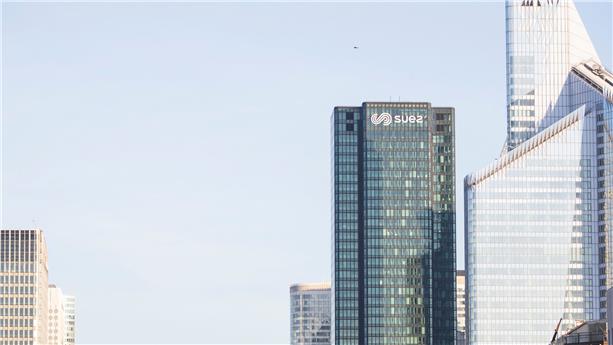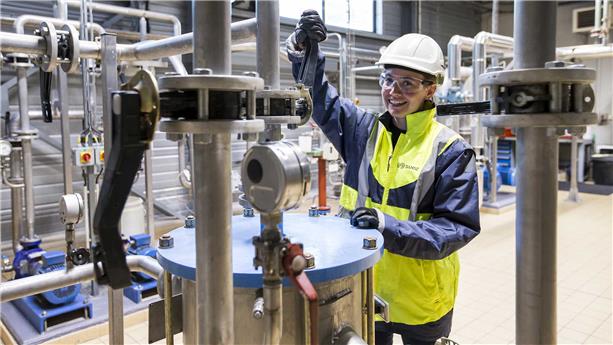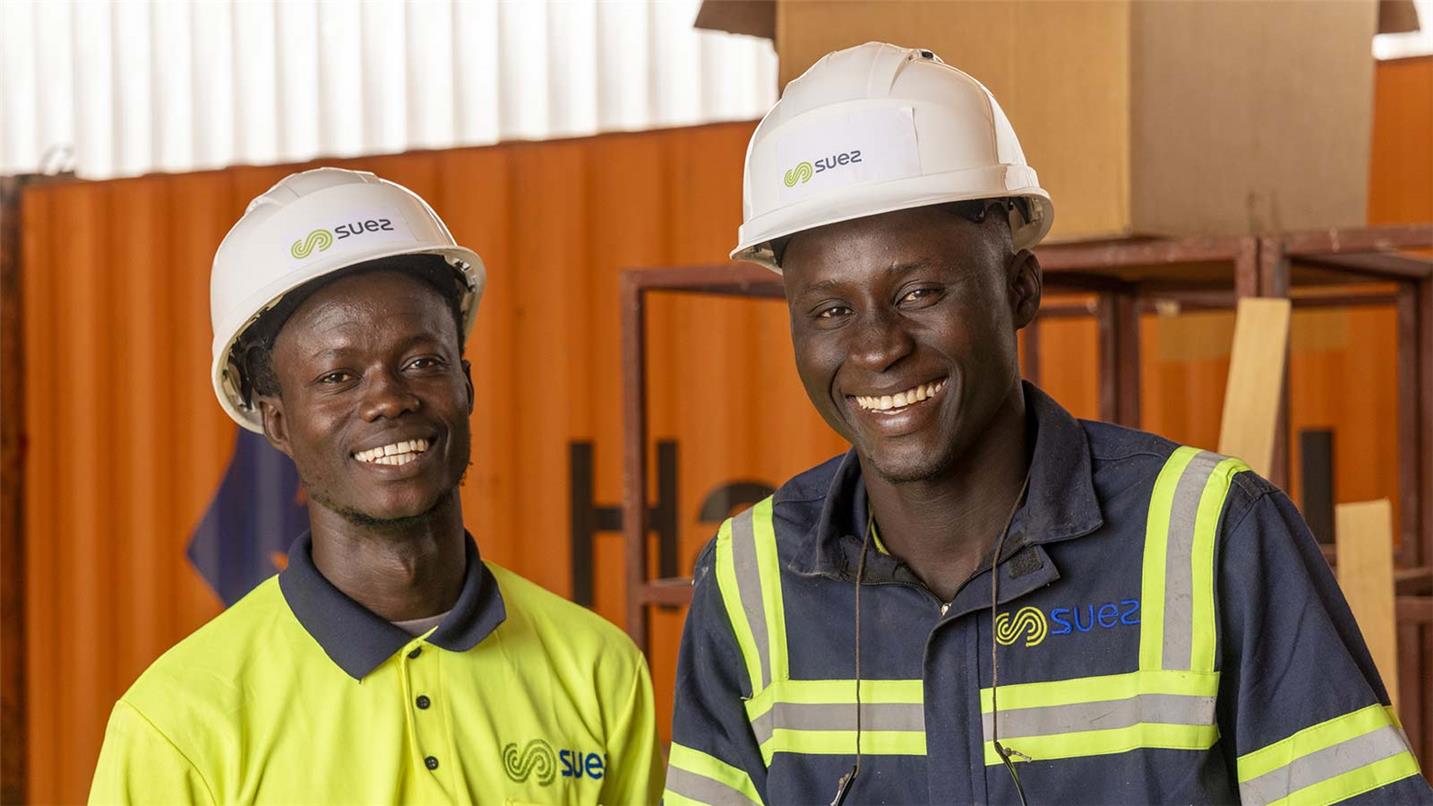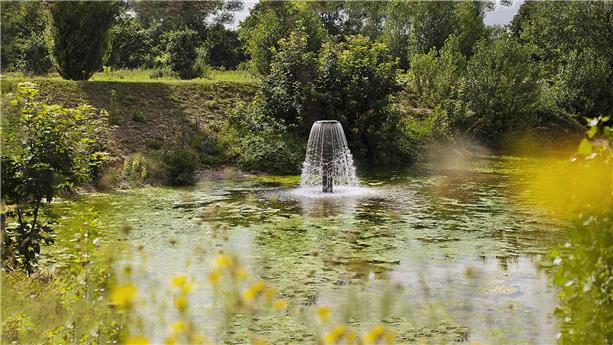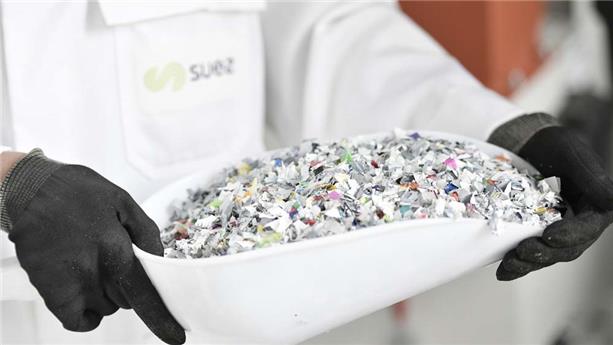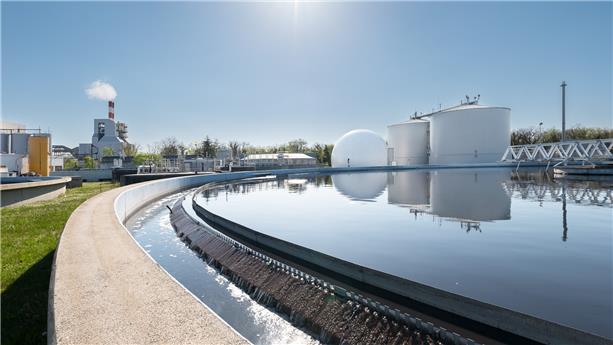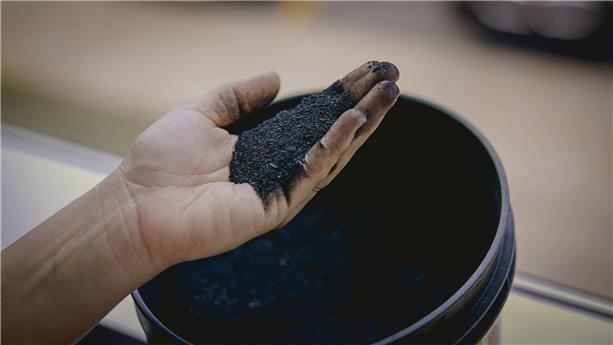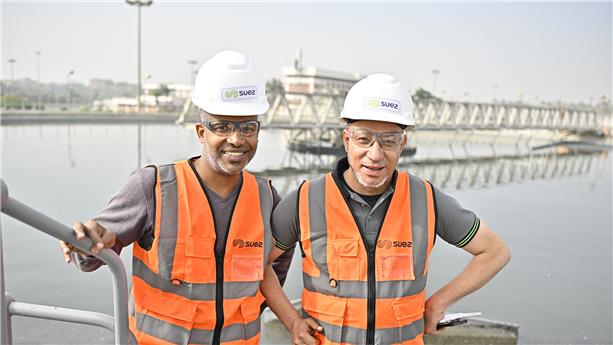
How do we develop employment and inclusion in local regions? How do we increase the social impact of our activities? How do we develop local circular economy loops, reuse, urban agriculture, and “niche” waste collection and recovery? How do we change behaviours and encourage people to behave in an environmentally friendly way? These important and wide-ranging questions stem from SUEZ’s water and waste activities to provide essential services for local communities, while also protecting resources and biodiversity. As a key player in environmental services, the Group has addressed these questions to form the basis of its social innovation policy and provide a response to its stakeholders – local authorities and industrial operator customers, partners, suppliers and employees.
Our social innovation in action
Helping people excluded from employment to find work
In France, SUEZ uses its subsidiary Rebond Insertion to help people excluded from employment – long-term job seekers, recipients of RSA (Revenu de Solidarité Active) social welfare benefits, refugees, workers with disabilities and young people without qualifications – to find work in the fields of water and waste management. Since it was created in 2002, Rebond Insertion has helped more than 12,000 people, enabling 7,500 of them to find long-term work or access training leading to qualifications. In 2024 alone, SUEZ supported 822 employees in their integration process.
12,000
Supporting reuse in connection with the social and solidarity economy
In the United Kingdom, SUEZ is responsible for waste collection and treatment for the Greater Manchester Combined Authority, the country’s largest waste management authority. The Group
is helping the authority to reduce waste with the launch of Renew Hub, a site dedicated entirely to the reuse and repurposing of items destined for disposal.
Renew Hub also supports local causes. Each year, £100,000 is donated to the Greater Manchester Mayor’s Authority to help homeless people, and £220,000 is given to the Recycle for Greater Manchester (R4GM) community fund to help reduce waste and promote recycling and reuse. This financial support is passed on to 46 charities in Greater Manchester, with more than £1 million donated in total.
To take its social innovation even further, the Group created the Employees’ Solidarity Commitment Charter in 2023, which offers two additional days of paid leave a year for SUEZ employees in France wanting to volunteer for a charity or social and solidarity economy enterprise. The Charter also provides the opportunity for employees to leave the company up to 12 months before retirement, while still receiving their salary, to work for a charity. In 2024, 773.5 days of volunteering were provided by SUEZ employees.
“We are proud to be involved in innovative projects in relation to social inclusion and responsible consumption, making SUEZ a more inclusive employer in all regions.”
Laurent-Guillaume Guerra, Group Chief Human Resources Officer and Head, Health & Safety at SUEZ
—
Users play an increasingly central role in water and waste management. All their actions – whether restricting how much water they use, sorting their waste or adopting environmentally friendly gestures – help to protect the Earth’s natural resources and reduce their impact on the environment. Mobilising and engaging people is essential in working together to build a more sustainable future. Alongside its customers, SUEZ provides innovative and educational solutions to encourage people to think about what they consume and act in an environmentally friendly way on a daily basis. This civic involvement adds to the range of technical and operational solutions developed by SUEZ to encourage sustainable management of public water and waste services.
Our social innovation in action
Helping users to restrict their water consumption
To help consumers who want to understand and manage their water use 24/7, SUEZ has developed the Tout sur mon eau (“All about my water”) app. This free app enables users to monitor and optimise their water consumption in an intuitive way, thanks to a precise estimate of their monthly consumption in litres and the equivalent cost in euros, which makes it easier for people to manage their water budgets. It also allows for a comparison of each household’s water consumption with that of similar households.
Users can view a breakdown of their consumption by area (shower, toilet, garden, etc.) in order to target where savings can be made. Personalised advice is offered according to users’ consumption habits, showing the saving made in euros, such as installing water-saving showerheads or tips for more effective watering. The app also includes a “Water in my area” service,
which enables users to access all information about water in their area (water price, dry spells, hard water, nearby works, etc.).
Since 2020, SUEZ has monitored the development of French people’s sorting habits and behaviour to limit their waste by means of the Odoxa-SUEZ “French people and waste reduction” annual opinion survey. The 2025 survey showed that 9 out of 10 French people sort their waste, an increase that demonstrates that this habit is now firmly anchored into their day-to-day lives. Some environmentally friendly gestures have declined in the last few years, such as bulk buying, short-circuit distribution and not using disposable products (nappies, napkins, tableware).
SUEZ has developed Mon Service Déchets (“My Waste Service”), a key solution for helping users to act in an environmentally friendly way. It provides tips on how to reuse and reduce waste in simple ways. Other features are available such as geolocation of voluntary drop-off points, recycling centres and nearby waste centres, as well as reporting problems and sending requests for one-off collections. By scanning barcodes on packaging, the app tells users how each item should be recycled. This engaging and fun app with a strong local anchoring is a comprehensive and effective tool for local authorities wanting to develop their user relations.
The app is currently used by French city authorities such as Dijon Métropole, Bourges Plus Communauté d’Agglomération, Limoges Métropole, Le Grand Montauban and Nîmes Métropole.
43,000
“Dijon Métropole was the first local authority in France to offer SUEZ’s Mon Service Déchets app to its residents. From the first year of use, the app demonstrated its effectiveness by helping a number of residents to improve their waste sorting. Reducing sorting errors is crucial for us: each year, around 20% of waste received at sorting centres cannot be recycled.”
Jean Patrick Masson, Vice-President of Dijon Métropole
—
France’s anti-waste law of 10 February 2020 has set the target of reducing household waste per inhabitant by 15% by 2030. To achieve this, SUEZ is helping users to reduce their waste by means of prevention and awareness-raising actions in relation to sorting and recycling. The Group also offers local authorities new waste management models, which encourage prevention and optimisation of resources collected rather than simply paying for quantities of waste collected and processed.
Innovation in action
SUEZ signed a performance contract in 2023 with the Communauté Urbaine de Limoges, setting out innovative measures to encourage the reduction, sorting and recycling of waste. This contract is based on reversing collection frequencies: household waste is collected once a fortnight, while paper and packaging is collected weekly, encouraging residents to sort their waste more. Since June 2023, collection of biowaste has been added in order to further reduce household waste at the source. SUEZ has also launched a campaign to raise users’ awareness and encourage them to adopt new practices, in collaboration with local partners.
To support the local region’s environmental transition, all household waste collections are made by a fleet of low-carbon lorries, comprising electric vehicles and vehicles powered by biofuel, reducing carbon emissions by 93% compared with the previous fleets, equal to 1,400 tonnes less carbon emitted over the term of the contract.
“With this performance contract, Limoges Métropole has opted for a new model of waste management able to drive forward the environmental transition by involving local users. By developing technical innovations and guaranteeing access to and sharing of steering and reporting tools, SUEZ ensures that the service is effective and transparent. Teams are already working with members of the local region to ensure a service that is synonymous with economic, social and solidarity development in the local area.”
David Lamy, Managing Director of Recycling and Recovery at SUEZ France
—
